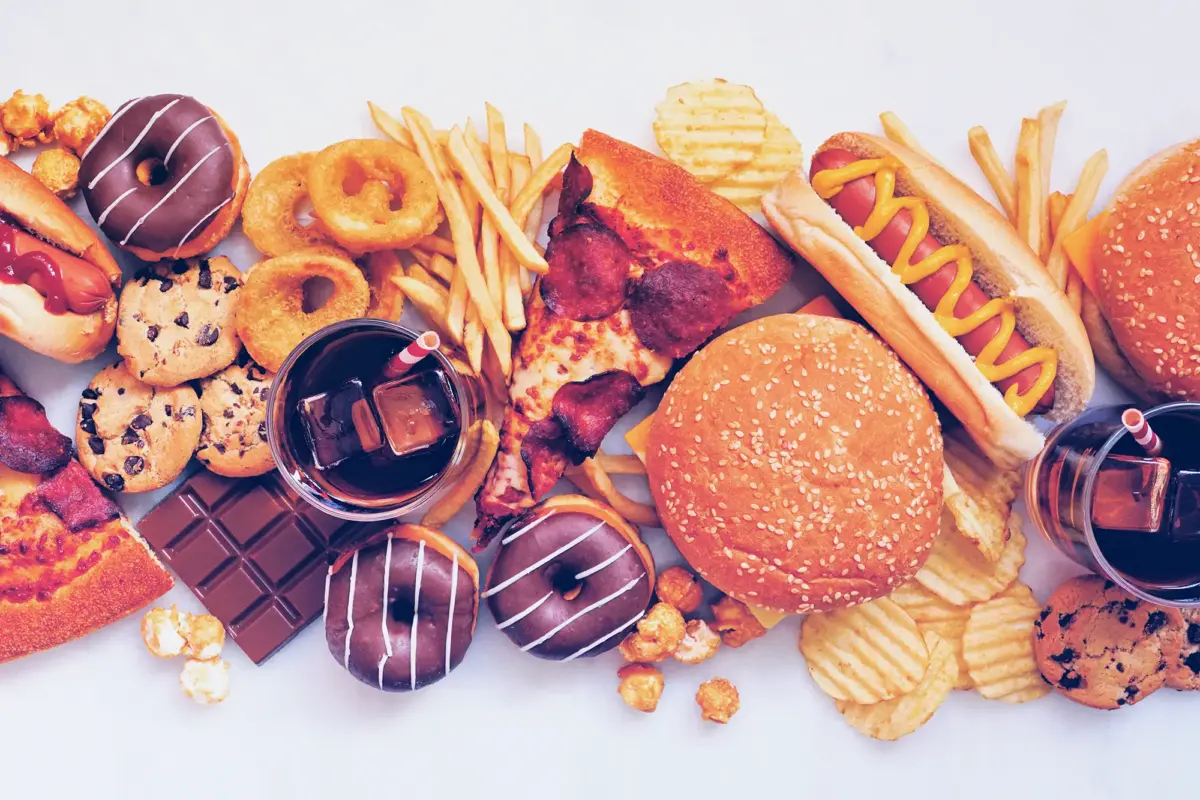Does increasing protein and restricting carbohydrates impact energy consumption in individuals following a diet of ultra-processed foods?
Overview
- What did they test? Researchers tested the effect of consuming traditional ultra-processed foods (UPF) to ultra processed foods with higher protein and lower carbohydrate content (UPF+P). The participants consumed each diet for 2 days after a 4 day run-in period and researchers tracked their energy intake, energy expenditure, and markers of blood sugar control during this time.
- What did they find? Participants consumed less calories during the UPF+P phase, expended more energy, and improved glucose levels. However, calorie intake during the UPF+P meals was higher than the high protein control meals that were less processed.
- What does it mean for you? There is an extensive body of research demonstrating negative health effects of diets high in UPFs. Much of these negative effects can be attributed to excess calorie intake as ultra-processed foods are often low in protein, low in fiber and highly palatable making them likely to be overeaten. This study showed that fortifying UPFs to make them high in protein and lower in carbohydrates may help to mitigate the excess calorie intake associated with UPF consumption, but it does not completely eliminate it.
What’s The Problem?
High consumption of ultra processed foods is associated with increased risk for obesity, metabolic syndrome, poor mental health, digestive health issues, heart disease, colorectal cancer, and more 1. Some of the deleterious effects of ultra-processed food consumption can be attributed to their hyper-palatability and propensity to drive excess calorie intake and obesity 2.
Over the last several years there has been an increasing number of products on the market that fortify ultra-processed foods with protein. Many of these products use the higher protein content as the basis for claims that these products can be helpful for weight management and obesity.While there is evidence to support the role of higher protein diets in weight management 3, there is a lack of data supporting the potential for protein fortified processed foods to aid in weight loss. It is unknown whether fortifying foods with protein can mitigate the energy overconsumption typical with processed food consumption.

Purpose
It is unclear if fortifying UPFs with protein can help mitigate the excess calorie consumption associated with UPFs. Therefore, the purpose of this study was to compare a diet high in UPFs to one fortified with protein to determine if there is a reduction in energy intake when protein is added to UPFs.
Hypothesis
The authors hypothesized that consuming UPFs higher in protein would lead to less energy intake than consuming UPF lower in protein.








